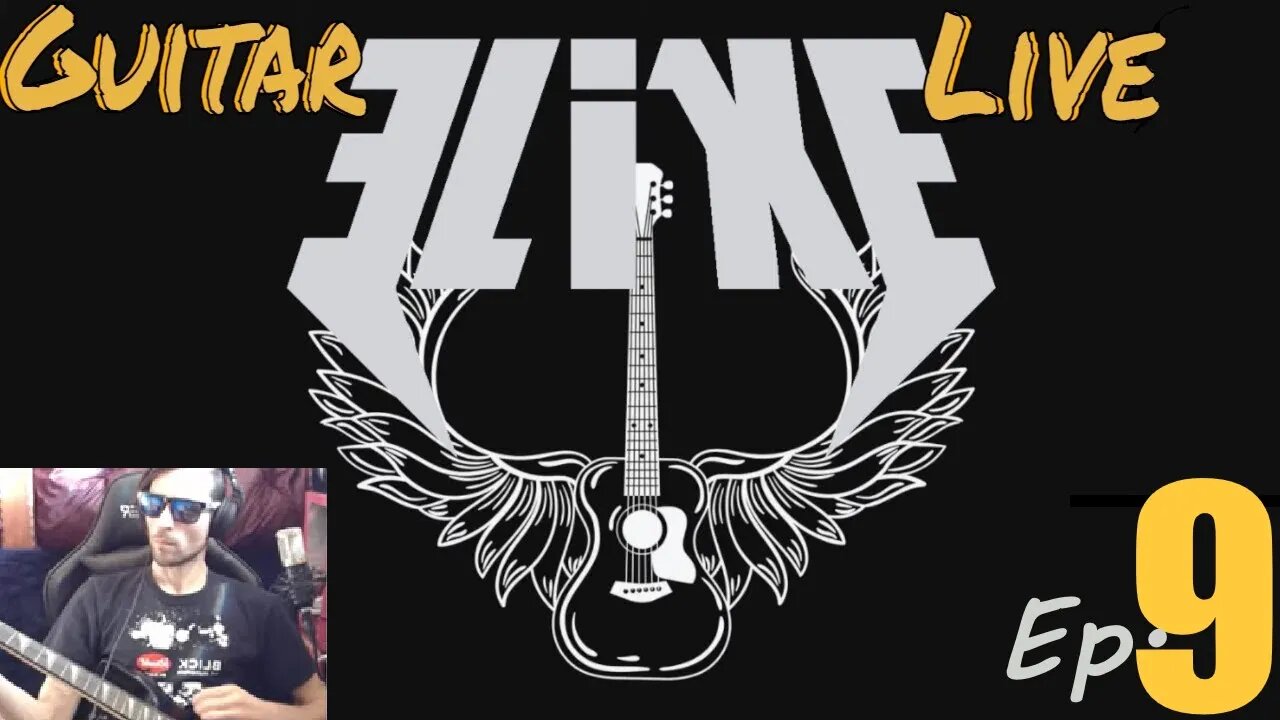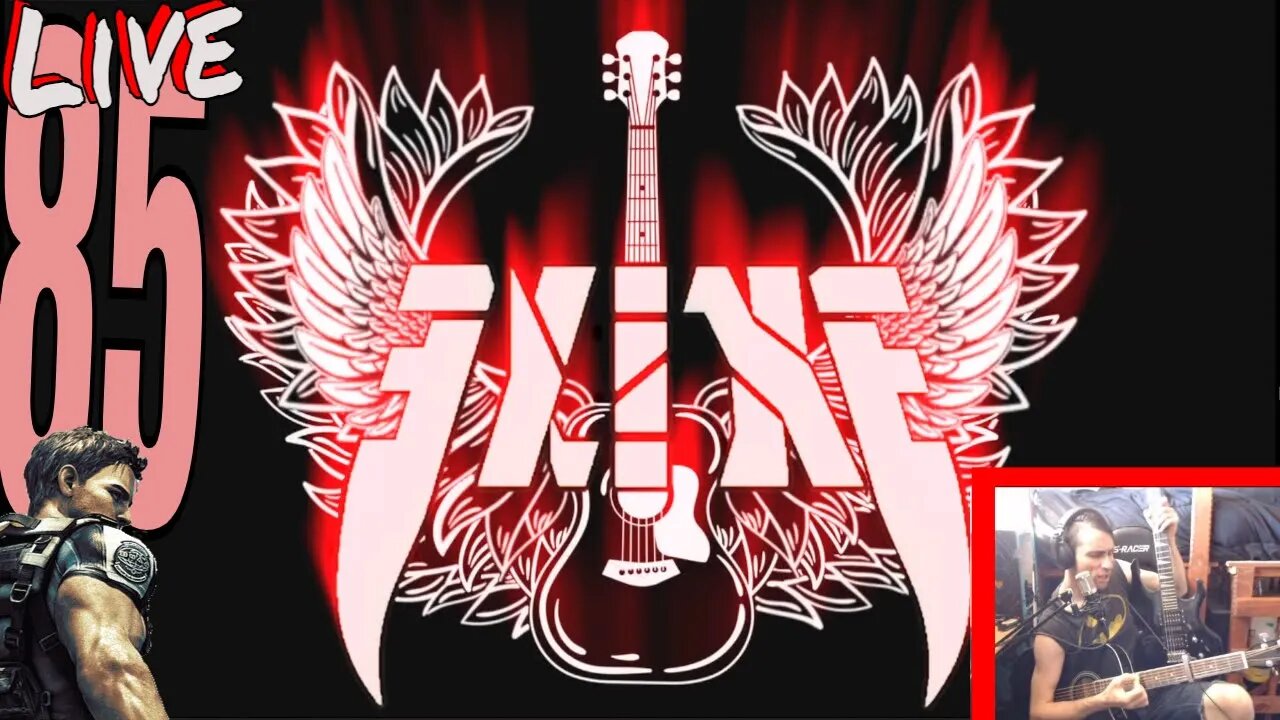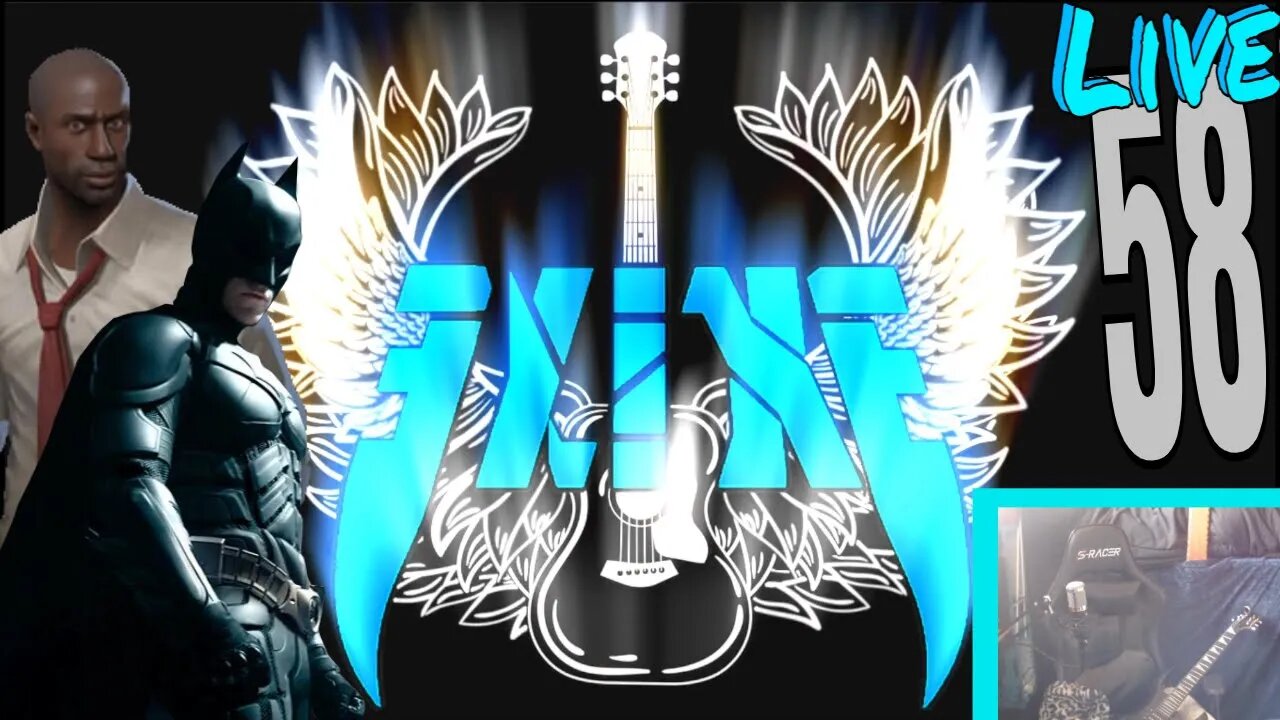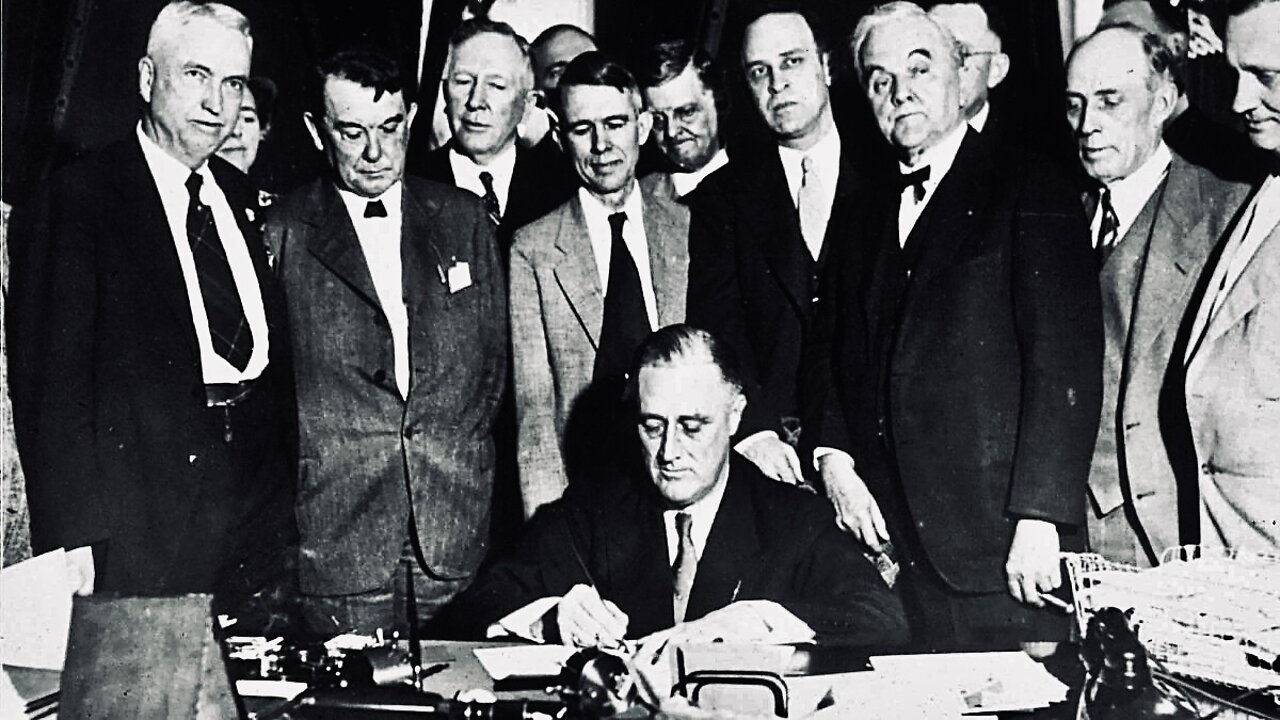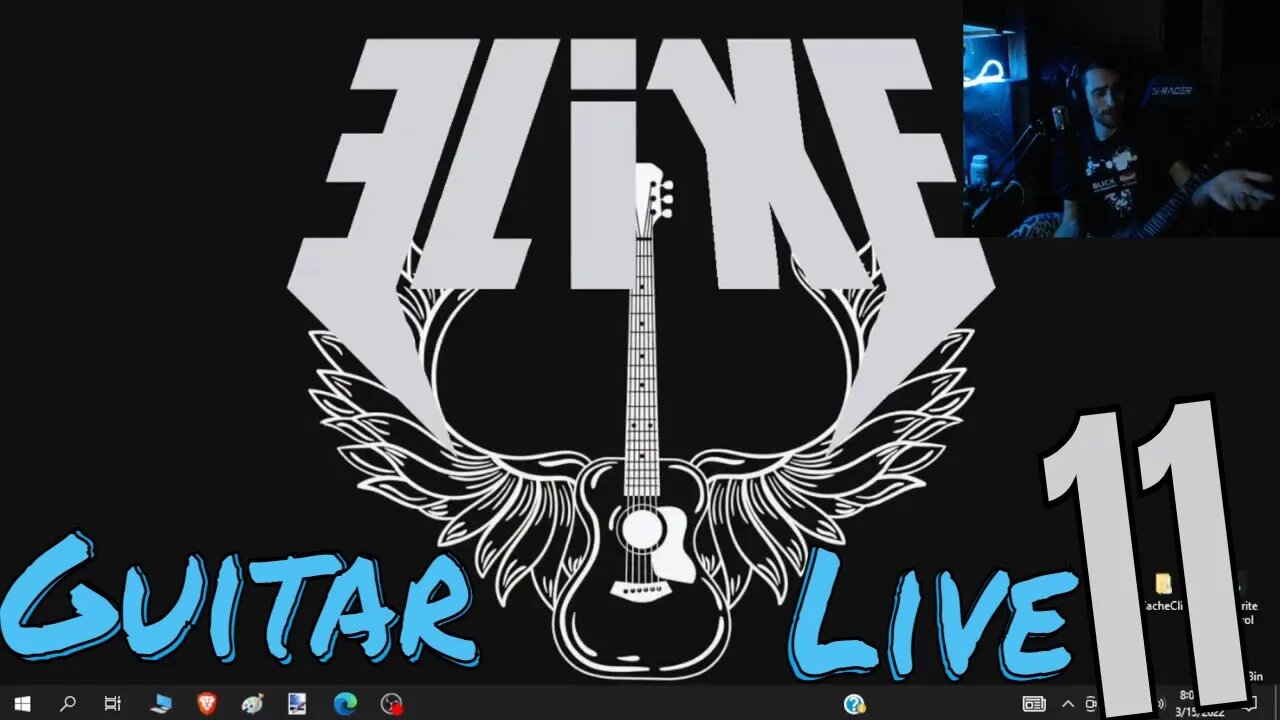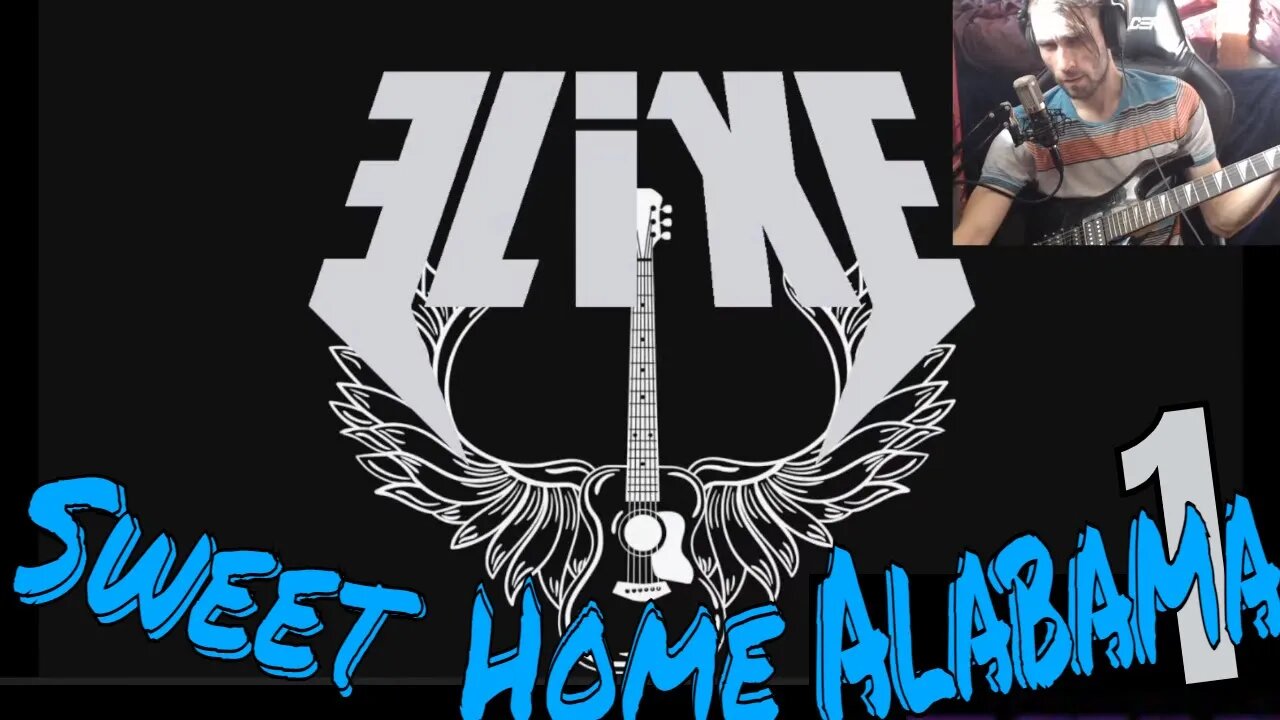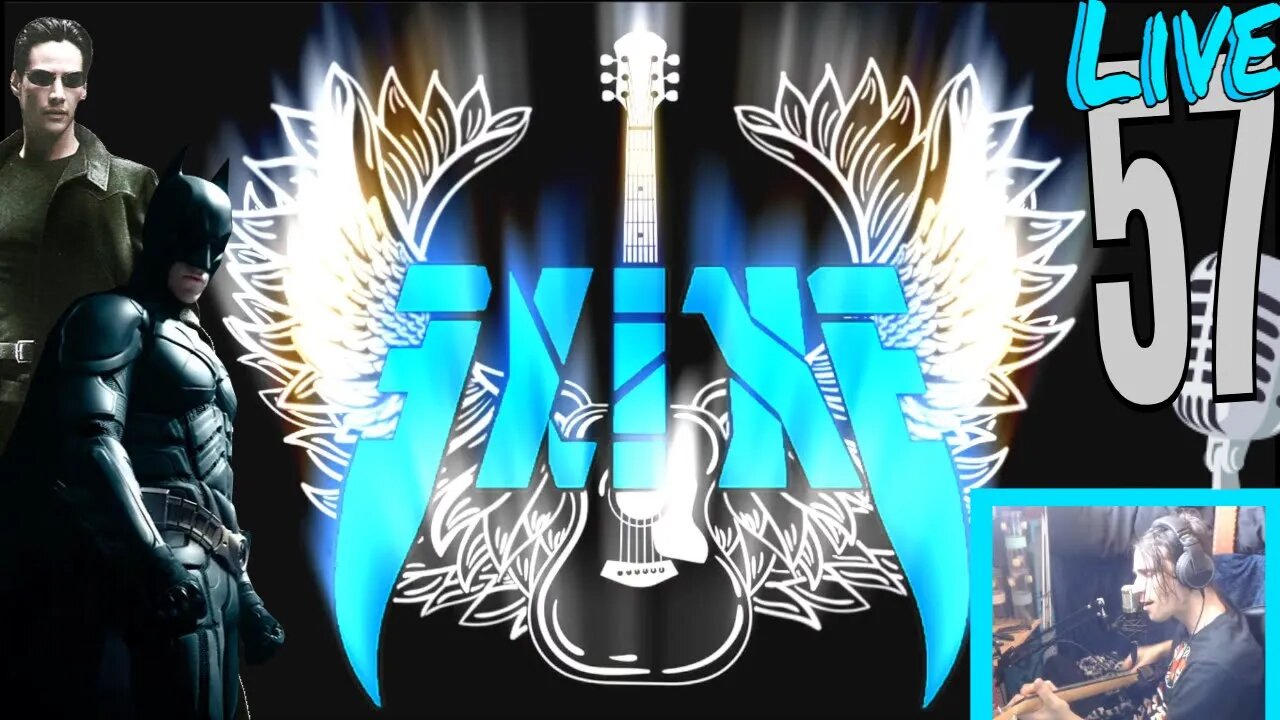Guitar And Singing Practice! Elixe Live: Ep. 60
Whipping Post Variations | One Blues Lick | Guitar Lesson
I want to play a whipping post guitar lesson but I dont want a copyright strike.
I want to play a blues lick on guitar but it belongs to Johnny Winter.
Careful….play those 5 notes and you might be asking for a copyright strike.
Today we’re going to talk about notions derived from Copyright Infringement. That is,
These 5 notes with one of them repeated 3 times are legendary notes to some. They begin Johnny Winter’s “it’s My Own Fault” from the epic album, “Johnny Winter And Live”.
You play these 5 notes and there may be cause to give you a copyright strike.
Now if I were monetized with thousands of hours of viewing I might have to worry about playing those 5 notes in that order.
I get the feeling if I were making a huge some of money from my videos that some jerk would come along and flag me claiming that I should have a copy right infringement for playing Johnny Winters notes at some point in my blues demonstrations.
Sure you tell me its ok if your teaching it; it’s in the fair use act.
The way I see it, it doesnt matter how much copyright law you know, at some point any judge on a bad day can determin that you copied something even if you didnt play it the same way.
People like to rave about how “as long as you dont copy more than 10 notes in the melody.. as long as you dont copy 7 notes, 3 notes……my favorite one is: you can’t copyright a chord progression….”
They don’t know and most likely you don’t know. Have you read the copyright laws? I have heard that they don’t even help.
The main reason I raise this question centers around the question “can you copyright a blues lick”.
Usually by definition a lick or riff is a kind of cliché.
I can’t imagine that someone could grab an old cliché and say that they own the copyright to it.
Extracting from Whipping Post
1. Now I want to take it a step further; since I have been exploring the Fillmore whipping post 1971 by the Allman Brothers, I want to see what one could play that's like it but distant enough that you could call it your own.
2. The first two notes A and G: If I play similar combinations of A and G will I get a copyright strike?
3. The chord progression: What if I play the chords in 4/4 time? What about 5/4? What if I slow the tempo down so that its almost unlike it. What about speeding it up? There have been similar progressions just like this one : “Riders on the Storm” by the Doors. “Down in Monterey” by Eric Burton and Miles Davis did a tune called Milestones that used the progression.
4. Am I allowed to copy some leads from a certain recording? How many can I copy? What if I dont play them exactly the same way.
5. I imagine the groove of the piece is the giveaway. If you use the same notes in a totally different groove, how could anyone say that you are copying…..but this is just instinctual logic and not based on fact.
The question arises “why do we copy anyway”. This is how music was played traditionally. Back in the day of Bach they borrowed passages without thinking twice.
We tend to copy because we like the way something sounds and the fact that we can play it makes us all the more enthusiastic.
We learn by copying. There are traditional sounds that must be passed on. The art of it all is if you can get the “sound” or the “groove” without copying the notes themselves.
This means that there are two ways to go: You can take familiar notes from tunes and put them in a different light. Or you can take a groove and imitate it with completely different notes.
Lets take both examples one by one.
1. A and G notes with a totally different groove. Aminor, b minor, Cmajor with a totally different tempo.
2. A hard repetition on notes other than A and G or the pattern they create moving to a minor Dorian type of progression.
There might be need of a couple blues passages for balance.
So we have learned that there are two basic ways to copy. One way is with the same notes and different rhythms. The other way is to copy the groove with different notes and chords.
There are other details involved such as inflection, tension-release, volume and lyrics.
With blues licks you need to ask yourself “Have I heard this one before?”
Then you need to research. If there have been many uses and repetitions of the lick, then you have some ground to stand on. If you never heard anyone else do it, then you stand on thin ice.
I have not heard anyone else play those 5 notes that Johnny winter played on his live album. But then again on his album “the progressive blues experiment” He plays “it’s my own fault” and it sounds nothing at all like the live version. The licks are completely different not to mention the whole groove.
But I heard that you are allowed each version to be copyrighted as your own.
But as far as those 5 notes, I would be interested if anyone has heard them in that order around that tempo.
Until then it looks like we are going to have to play variations on those notes if we dont want that strike against us.




